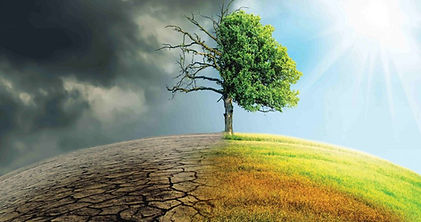
STANDING UP FOR GUERNSEY'S ENVIRONMENT

Biodiversity loss
What is biodiversity loss?
Globally, nature is declining faster than at any time in human history, with a 60% decline in wildlife populations over the last 40 years alone. Current extinction rates are 100 to 1,000 times higher than average over the past several million years.
This has consequences to our economy – 50% of global businesses are dependent on nature, and the economic cost of nature loss has been calculated to be 7.5% of GDP.
THE KEY ENVIRONMENTAL ISSUES
Key concepts
-
Biodiversity refers to the variety of all living things on our planet. It includes diversity within species, as well as between species and in ecosystems.
-
Biodiversity loss is the irreversible loss of species, including many forms of animal and plant life. Humans have already caused the loss of 83% of all wild animals and half of all plants.
-
Ecosystem products and services include fresh water, food and fuel services, among other things provided by the natural world that are essential for human life, health, and economic development.
-
Conservation, restoration and sustainable practices are essential to mitigate biodiversity loss, but at current levels they will be ineffective to stop it – according to IPBES, transformative change in our economic, social, political and technological approaches are needed to achieve sustainability.
Why should we care about biodiversity loss?
Nature is essential for human existence and quality of life. According to IPBES: “Nature plays a critical role in providing food and feed, energy, medicines and genetic resources and a variety of materials fundamental for people’s physical well-being and for maintaining culture.”
As the World Economic Forum points out, biodiversity benefits business, with more than half of the world’s GDP ($44 trillion) being highly or moderately dependent on nature – from pharmaceuticals to food and tourism. Every dollar (or pound) spent on nature restoration pays itself back 9 times over, with massive potential for new business opportunities through sustainable food production and agricultural practices. Biodiversity helps to protect against disease, and to buffer us from the worst effects of natural disasters. Without it, our world becomes far less habitable.
Why does it matter here in Guernsey?
The (limited) data we have on Guernsey’s own natural environment shows that:
• Over 63% of our grasslands (which are species-rich environments) have been lost since 1999. Our dry meadows have fared the worst – with 90% of them having been lost.
• Species of wader birds which were once common on our beaches, such as turnstone and dunlin, have declined by over 90% over the last 40 years.
• More than 80 species of animal and plant have been lost from Guernsey in the last 100 years, mainly as a result of habitat destruction and changing management regimes.
If the economic cost of nature loss (estimated at 7.5% of GDP) is scaled to Guernsey’s economy, the local cost of nature loss is £200-£300 million. This is about the same as the cost of the coronavirus crisis except it is a sustained, annual cost.
Where can I find out more?
-
The Dasgupta Review: Independent Review on the Economics of Biodiversity (Interim Report)
-
World Economic Forum: Nature Risk Rising – Why the Crisis Engulfing Nature Matters for Business and the Economy
-
States of Guernsey: Mitigate Climate Change – States of Guernsey Climate Change Policy & Action Plan
-
States of Guernsey: 2018 Habitat Survey
-
IPBES: Global Assessment Report on Biodiversity and Ecosystem Services – Summary for Policy-Makers
-
UN Sustainable Development Blog: Nature’s Dangerous Decline ‘Unprecedented’, Species Extinction Rates ‘Accelerating’

